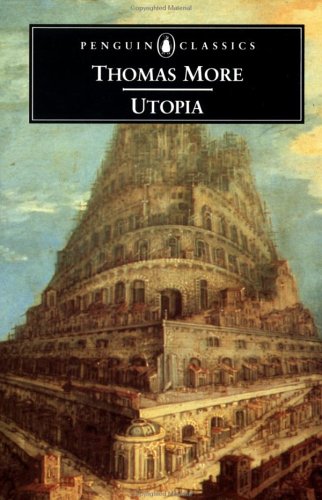What’s a Dystopia Anyway?
——————————————–
Nineteen Eighty-Four is referred to by many people as a prime example of dystopian literature. But in order to explain what a dystopia is, we must first understand what its opposite means.
 Dystopia was coined as an antonym for the previously-coined word, utopia. Sir Thomas More invented the word to use as the title of his 1516 novel about an imaginary island which contained ideal social, political and legal systems. The word utopia comes from two Greek words, ou (not) + topos (place). In other words, such an ideal place did not exist: it was nowhere…Utopia.
Dystopia was coined as an antonym for the previously-coined word, utopia. Sir Thomas More invented the word to use as the title of his 1516 novel about an imaginary island which contained ideal social, political and legal systems. The word utopia comes from two Greek words, ou (not) + topos (place). In other words, such an ideal place did not exist: it was nowhere…Utopia.
While ‘utopia’ has come to mean any place which is “impossibly idealistic” (Encyclopedia Britannica), dystopia connotes “an imaginary place where everything is as bad as it can be” (Collins English Dictionary). Another writer, John Stuart Mill, coined the term dystopia in 1868 to describe the British government’s policy on Irish landholding. The Mills quote below seems quite appropriate to the subject of Nineteen Eighty-Four:
